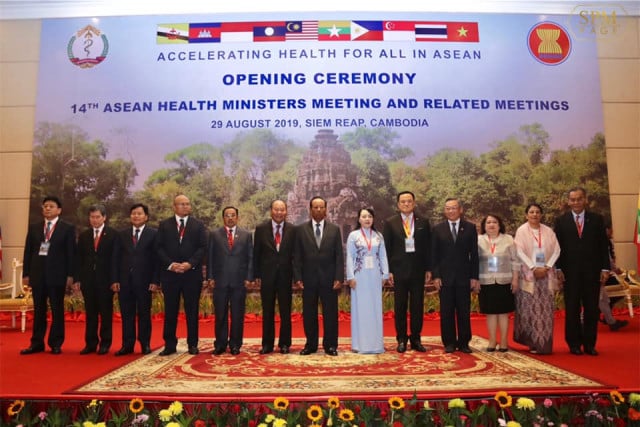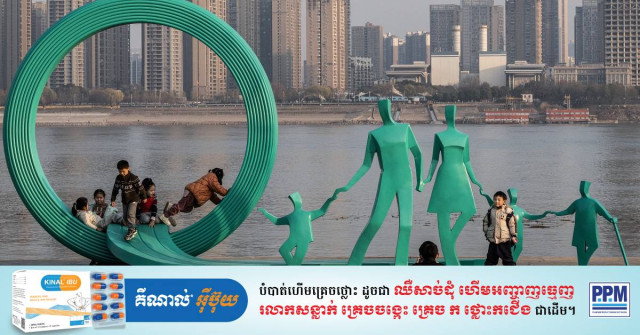Cambodia Seeks Chinese Action on Online Crime Movie

- By Lay Sopheavotey
- and Meng Seavmey
- September 27, 2023 6:29 PM
PHNOM PENH – Cambodia has asked Beijing to review a high-grossing Chinese-made movie with a plot that includes Cambodian involvement in human trafficking and online crime.
One Cambodian social analyst is seeking a world-wide ban on ‘No More Bets’ while another is urging the government to launch a campaign countering the film’s themes of Cambodian involvement in the scams.
The film is about a Chinese programmer and a model who are enticed by the promise of high-paying jobs but become trapped in a foreign country and forced into online gambling fraud.
Since its release on Aug. 8, the movie has earned 3.7 billion yuan ($507 million), the South China Morning Post said on Sept. 21.
China Daily said it was the highest-grossing film in terms of advanced sales for a Chinese movie.
The Daily said director Shen Ao had spoken of studying more than 10,000 cases and interviewed people, from victims to police officers, to gain inspiration for the movie.
Cambodia’s Ministry of Culture and Fine Arts has asked the Chinese Embassy to review the movie, saying it had a negative effect on Cambodia’s image.
“We asked the Chinese Embassy not to show ‘No More Bets’ movie,” ministry spokesperson Sum Map said.
“The Embassy is still working on it. If there has been a leaked or a broadcast already, the ministry calls on the local authority to ban the movie in Cambodia.”
The movie shows cybercrimes, online scams and human trafficking that involve ASEAN countries such as Myanmar, Thailand and Cambodia, Map said.
The movie has provoked a strong reaction from the Cambodian public because the storyline may severely affect investors and international tourist visits to Cambodia.
Officials have seen only a trailer for the film. Map said filming took place in China and the ministry did not get to review the storyline beforehand.
The Ministry of Culture and Fine Arts, along with the Ministry of Foreign Affairs and International Cooperation, have asked to see the full version.
Experts who had seen it said the movie was based on a real case in Singapore, and it was to spread online scam awareness among the Chinese people.
Pa Chanroeun, the president of the Cambodian Institute for Democracy, said the Embassy of Cambodia in China and the Ministry of Culture and Fine Arts should have reacted to the movie before the movie was officially released.
“There were also incorrect Khmer letters on the characters' T-shirts, which shows how the movie undervalues Cambodia and affects the language,” he said.
"The movie will make international tourists scared of coming to Cambodia and that they cannot trust their own safety in the country. The story line severely affects Cambodia's image and will harm the tourism sector."
Despite the late response to the problem, Chamroeun suggested the government should call for intervention from China to re-evaluate the negative impact so that the movie will be taken down from the screens before it spreads further.
Chanroeun believes that banning the movie in Cambodia will not be enough to protect the country's image because it will be still available to the world.
Yong Kim Eng, president of the People Center for Development and Peace, said a ban would not be effective in the digital era. Kim Eng suggested explaining the real situations and comparing them with those in the movie.
"Tthe explanations should be based on how the government has cracked down the previous online scams. They should present the strategies of security protection for tourists,” he said.
“Lastly, they shall show a reliable result of how the authority has shut down online scams or online gambling so far.
"However, they shouldn’t be all talk. They have to actually do it to ensure the safety and respond to the problem."
Kim Eng thinks that showing the movie is adding fuel to the fire. There will be even more concern because cybercrimes and online scams have affected the tourism sector, especially among Chinese people.
Kim Eng called on stakeholders to cooperate with international news broadcasters or media companies to promote the country's tourism safety protection strategies even more inclusively.
He believes it will help attract and regain trust of tourists regardless of the movie.















